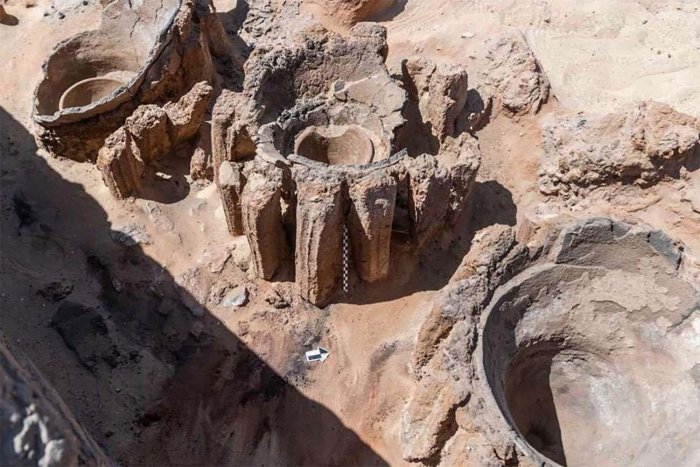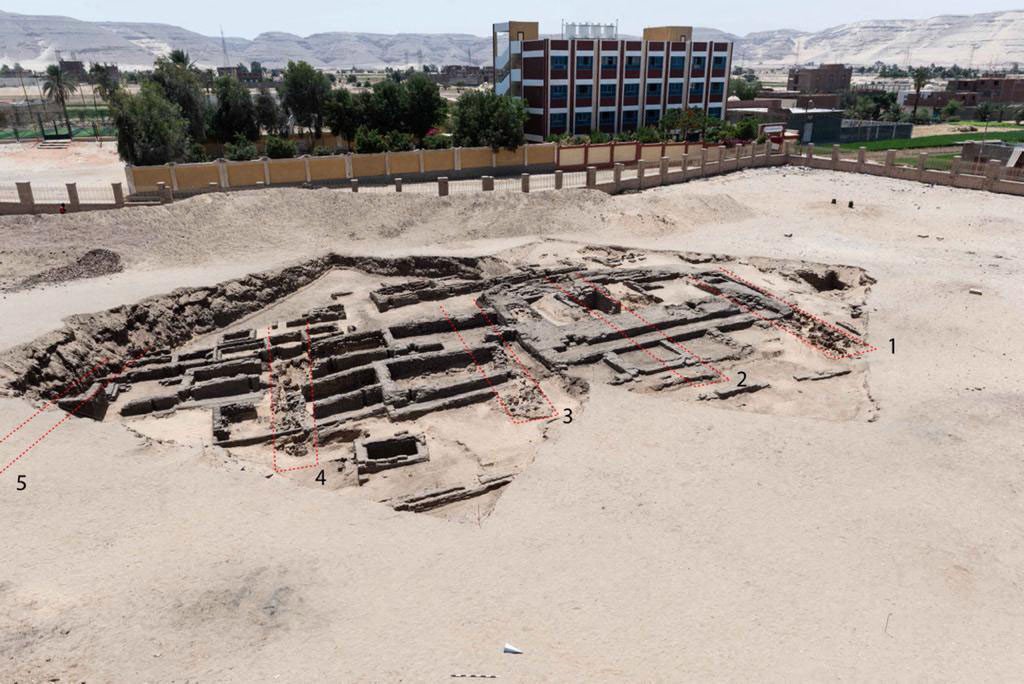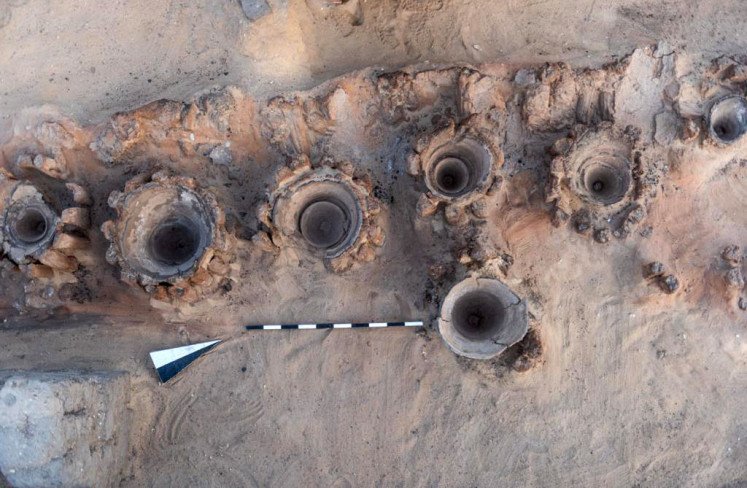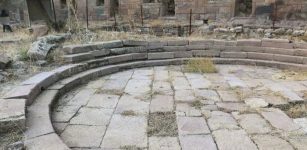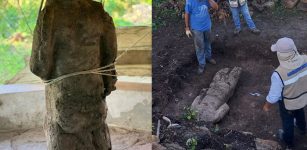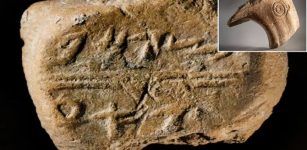World’s Oldest Beer Factory Discovered In Abydos, Egypt
Jan Bartek - AncientPages.com - Archaeologists have unearthed what could be the world’s oldest known beer factory in Abydos, Egypt. This huge 5,000-year-old factory produced thousands of liters of beer.
Being once the epicenter of the cult worship of Egyptian God Osiris, Abydos is one of the most important cities where we find vast cemeteries and magnificent temples including the memorial temple of Pharaoh Seti I.
A 5,000-year-old beer factory has been discovered in Abydos, Egypt. Credit: Agence France Presse/Egyptian Ministry of Antiquities
Abydos has once again shown it’s one of the most interesting archaeological places in Egypt. While excavating in Abydos, an ancient burial ground located in the desert west of the Nile River, over 450 kilometers (280 miles) south of Cairo, a team of American and Egyptian archaeologists found the ruins of the ancient high-production brewery.
The site containing several "units" consisting of about 40 earthenware pots arranged in two rows was uncovered at North Abydos, Sohag, by a joint Egyptian-American team, the ministry said in a statement on its Facebook page.
British archaeologists were the first to mention the existence of the factory the early 1900s, but they could not determine its location, the antiquities ministry said.
A mixture of grains and water used for beer production was heated in the vats, with each basin "held in place by levers made of clay placed vertically in the form of rings". Credit: Agence France Presse/Egyptian Ministry of Antiquities
The brewery, which had a production capacity of 22,400 liters, was split into eight sections each containing 40 clay pots used to warm mixtures of grain and water.
The brewery likely dates back to the era of King Narmer, the secretary-general of Egypt's Supreme Council of Antiquities, Mostafa Waziry, said, adding it believed the find to "be the oldest high-production brewery in the world."
Many researchers identify Narmer with the First Dynasty pharaoh Menes, who is also sometimes credited with the unification of Egypt, as the first pharaoh. This conclusion is based on the Narmer Palette, on which Narmer is shown as the unifier of Egypt.
According to archaeologist Matthew Adams of New York University, who heads the joint mission with Deborah Vischak of Princeton University, the brewery "may have been built in this place specifically to supply the royal rituals that were taking place inside the funeral facilities of the kings of Egypt." This conclusion is based on the fact that archaeologists found evidence showing the use of beer in the sacrificial rites of ancient Egyptians.
Whether rich or poor, the ancient Egyptians loved beer. Ancient Egyptians valued beer and used it not only to get drunk but as medicine and payment. Beer was of great importance in ancient Egyptian society and its existence gave women an opportunity to earn extra money.
Archaeologists found eight huge units – each is 20 meters long and 2.5 meters wide. Credit: Credit: Agence France Presse/Egyptian Ministry of Antiquities
Both adults and children enjoyed beer, and the drink brought many benefits to Egyptian society. There is also evidence beer played a decisive role during the construction of the pyramids.
Legends tell that god Osiris himself taught humanity the art of brewing. So, naturally, beer was considered the drink of the gods.
See also: More Archaeology News
Some years ago, scientists recreated a 5,000-year-old beer that was enjoyed by Egyptian Pharaohs, and they said it didn’t taste bad at all.
Ancient Egyptians were of course not the only people who enjoyed beer. We have previously seen that the oldest evidence of beer was found on a Sumerian tablet in Mesopotamia, and the world’s oldest paycheck reveals ancient Sumerian workers were paid in beer.
From ancient to modern times, beer remains a popular beverage throughout the world.
Written by Jan Bartek - AncientPages.com Staff Writer

